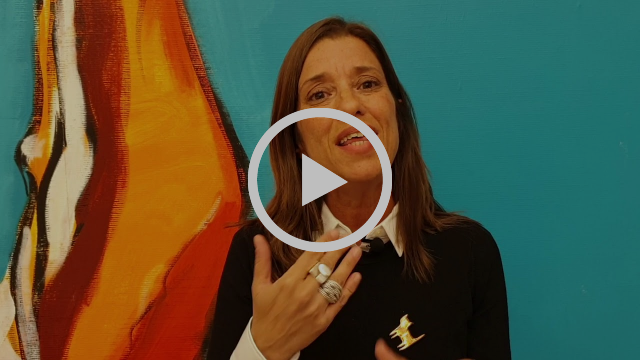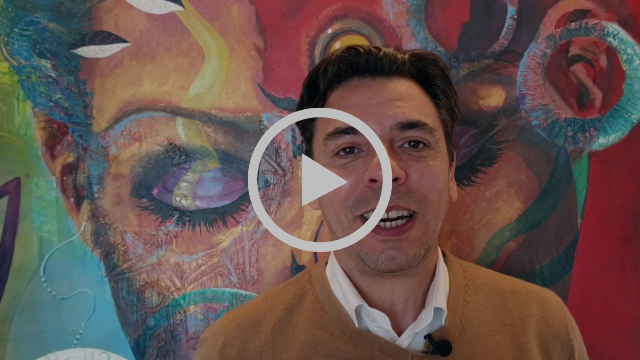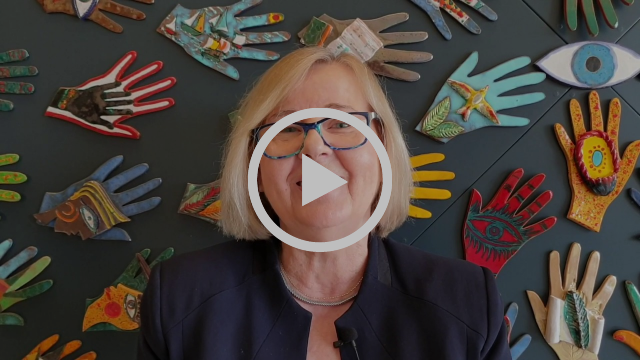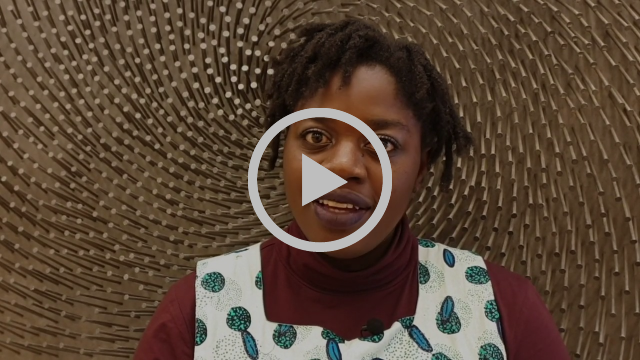Sexual Rights at HRC 40
The 40th session of the UN Human Rights Council took place from February 25th to March 22rd, 2019.
Below you will find information on some of the key sexual rights related:
- Resolutions
- Oral Statements
- Panel Discussions
- Side Event
- SRI Videos
All of which the Sexual Rights Initiative (SRI) was engaged with during the session.
Featured News
- For the first time, the Human Rights Council recognizes ‘the rights to bodily integrity and autonomy’ in a resolution.
- Language on the ‘right to sexual and reproductive health’ included in a resolution for the third session in a row
- The Sexual Rights Initiative, the Center for Reproductive Rights, CREA, Women Enabled International, ARROW, the Coalition of African Lesbians, Akahatá, Action Canada for Sexual Health and Rights, and the Federation for Women and Family Planning applaud South Africa’s leadership in bringing forth a resolution on discrimination against women and girls in sports that directly addresses the human rights violations arising from the intersections of racism and harmful gender norms. We also welcome the Human Rights Council resolution on rights of the child, but regret the Human Rights Council’s inability to recognize the autonomy, legal capacity and right to non-discrimination of children with disabilities, including to ensure that their sexual and reproductive rights are respected, protected and fulfilled.
Click here to read the full statement
Sexual Rights-related Resolutions
Elimination of discrimination against women and girls in sport – A/HRC/40/L.10/Rev.1 as orally revised
Led by South Africa and co-sponsored by 10 States as of 21 March 2019, the resolution seeks to address the unique and specific impact of racial discrimination on women and girls, including when competing in sport. It recognizes that sports regulations and practices which discriminate against women and girls on the basis of race, gender or any other ground, can lead to their exclusion from competing including when based on their physical and biological traits. This reinforces harmful gender stereotypes, racism, sexism and stigma, and infringes upon their dignity, privacy, and rights to bodily integrity and bodily autonomy. The resolution calls on States to ensure that sporting bodies refrain from implementing coercive policies and practices that subject women and girl athletes to unnecessary, humiliating and harmful medical procedures in order to participate in women’s events in competitive sports, and to repeal rules, policies and practices that negate their rights to bodily integrity and autonomy.
The resolution also requests the High Commissioner for Human Rights to prepare and present to the 44th session of the Human Rights Council a report on the intersection of race and gender discrimination in sports, including in policies, regulations and practices of sporting bodies, and elaborating on relevant international human rights norms and standards.
In its presentation of the resolution, South Africa asserted the need to recognize that gender and racial discrimination have a unique and specific impact on black women and girls from the Global South, especially when they live in poverty. This resolution seeks to address a specific form of that discrimination in sport, where black women and girl athletes from the Global South are being subjected to unnecessary, humiliating and harmful procedures in order to compete, and forced to “choose” between submitting to intrusive and degrading procedures violating their human rights or losing their ability to earn a living. Black women and girls cannot wait for others to permit them to enjoy their rights, which are constantly denied by patriarchal, racist and sexist systems and stereotypes.
India also expressed support for the resolution and commended it for focusing on these violations of women and girls’ human rights, including their bodily integrity and autonomy.
The resolution as orally revised was adopted by consensus.
You can watch the discussion and adoption here.
Click here to read the resolution
Recognizing the contribution of environmental human rights defenders to the enjoyment of human rights, environmental protection and sustainable development – A/HRC/40/L.22/Rev.1
Led by Norway, and co-sponsored by 54 States as of 21 March 2019, the resolution expresses concern at the situation of environmental human rights defenders, condemns the killing of and all other human rights violations or abuses against them, including women and indigenous human rights defenders, by State and non-State actors. It also expresses particular concern about systemic and structural discrimination and violence faced by women human rights defenders, including sexual and gender-based violence, and calls upon States to take appropriate, robust and practical steps to protect women human rights defenders, to integrate a gender perspective into their investigation of threats and attacks against human rights defenders, and to create a safe and enabling environment for the defense of human rights.
The resolution unfortunately does not sufficiently acknowledge the role of transnational and multinational corporations, particularly extractive industries, and their role in environmental degradation and gross human rights abuses against indigenous peoples and human rights defenders.
It also fails to talk about the relationships between States and multinational corporations, which should be one of accountability but is too often one of collusion, at the expense of human rights and the environment.
It makes invisible the specific ways in which race, gender and other forms of discrimination shape the violations experienced by human rights defenders, and fails to highlight the protection gaps in that regard.
This resolution as orally revised was adopted without a vote.
You can watch the discussion and adoption here.
Click here to read the resolution
Rights of the child: Rights of the child: empowering children with disabilities for the enjoyment of their human rights, including through inclusive education A/HRC/40/L.20/Rev.1
Led by the European Union and Uruguay on behalf of a group of Latin American and Caribbean countries and co-sponsored by 66 countries as of 20 March 2019, the resolution expresses concern about barriers impeding access to inclusive education for children with disabilities, as well as the greater risk of stigmatization, discrimination, exclusion, violence, abuse and neglect, and institutionalization on the basis of impairment they face. It calls upon States to respect, protect and fulfil the human rights of all children with disabilities, including their right to inclusive education, and to take all measures to prevent and eliminate all forms of discrimination, paying particular attention to the multiple and intersecting forms of discrimination and violence faced by girls with disabilities. The resolution calls upon States to collect disaggregated data on barriers faced by children with disabilities, to ensure their full and effective access to justice, and to take all measures to prevent their subjection to torture, cruel, inhuman or degrading treatment or punishment, or violation of their physical and mental integrity, including through forced sterilization, forced abortion and forced contraception. It also urges States to provide children with disabilities with the same range, quality and standard of free or affordable health-care services, information and education as other children to enjoy their right to the highest attainable standard of physical and mental health, including with regard to sexual and reproductive health, without stigmatization and discrimination of any kind.
The resolution was adopted by consensus.
You can watch the discussion and adoption here.
Click here to read the resolution
Other relevant resolutions included:
- Thirtieth anniversary of the Convention on the Rights of the Child – A/HRC/40/L.21
- Question of the realization in all countries of economic, social and cultural rights – A/HRC/40/L.23
- The effects of foreign debt and other related international financial obligations of States on the full enjoyment of all human rights, particularly economic, social and cultural rights – A/HRC/40/L.13
- The negative impact of the non-repatriation of funds of illicit origin to the countries of origin on the enjoyment of human rights, and the importance of improving international cooperation – A/HRC/40/L.9
- The right to food – A/HRC/40/L.12
SRI Oral Statements
- Interactive dialogue with the Independent Expert on Foreign Debt and the Special Rapporteur on the Right to Food (watch the statement here)
- Interactive dialogue with the Special Rapporteur on Human Rights Defenders and the Special Rapporteur on Torture (watch the statement here)
- Interactive dialogue with the Special Rapporteur on Cultural Rights – Statement from SRI partner the Federation for Women and Family Planning on behalf of the Great Coalition for Equality and Choice from Poland
- Annual full-day meeting on the Rights of the Child (watch the statement here)
- Interactive dialogue with the Special Rapporteur on Freedom of Religion or Belief
- Interactive dialogue with the Special Rapporteur on the Rights of Persons with Disabilities (watch the statement here)
- Panel Discussion on Countering Nationalist Populism (watch the statement here)
- Item 8 General Debate (watch the statement here)
Joint Oral Statements
Interactive dialogue with the Special Rapporteur on Cultural Rights – Joint statement with the Association for Women’s Rights in Development (AWID) (watch the statement here)
UPR outcome of Senegal – Joint statement with Right Here Right Now Senegal et Rutgers (in French and English) (watch the statement here)
UPR outcome of Nigeria – Joint statement with Women Action for Gender Equality (WAGE) and the Coalition of African Lesbians (CAL)
UPR outcome of Nigeria – Joint statement with the Equality Triangle Initiative (watch the statement here)
UPR outcome of Mexico – Joint statement with Musas de Metal Grupo de Mujeres Gay A.C. (in Spanish)
Side Events
SRI side event: Resistance and Resilience
While there has been an intensified backlash against women human rights defenders (WHRDs) across the globe, WHRDs are, and have remained, resilient and resolute actors in the human rights systems. In regional spaces, WHRDs working on sexual rights have been the leading force in challenging gender stereotypes and calling for social transformation and justice. WHRDs’ contribution to raising awareness of women’s rights and gender equality have been recognized at the international and regional level by human rights bodies. As WHRDs working on sexual rights engage in regional and international human rights bodies they reveal that the same struggles of patriarchy, capitalism, racism, militarism, and colonialism they are fighting against at the local level are also prevalent within regional and international human rights bodies, which reflect a microcosm of interlocking systems of oppression. Indeed, international and regional human rights bodies constitute sites of institutional power that create and shape the realities and discourses that WHRDs working on sexual rights face.
This side-event explored how WHRDs working on sexual rights have engaged within the African Commission on Human and Peoples’ Rights (ACHPR), the Inter-American Commission on Human Rights (IACHR), the European Court of Human Rights (ECtHR), and the ASEAN Intergovernmental Commission on Human Rights (AICHR) to advance human rights, question the unbalanced power relations between North and South actors in these spaces, and create change despite the limitations of these spaces.
You can find updates from the event on Twitter, by using the hashtag #ResistanceAndResilience and by reading the event threads by the Coalition of African Lesbians and SRI.
Gender and Privacy in the Digital
Age Caroline Tagny from the Coalition of African Lesbians also took part in a panel organized by the Association for Progressive Communications on the gendered dimensions of privacy in the digital age. You can find updates from the event by using the hashtag #GenderAndPrivacy and on our Twitter page.
Sexual rights-related panel discussions
Click below for the links to the webcast of panel discussions.
- Morning meeting of the annual full-day meeting on the rights of the child (Theme: Empowering children with disabilities for the enjoyment of their human rights, including through inclusive education)
- Afternoon meeting of the annual full-day meeting on the rights of the child (Theme: Including children with disabilities in education settings: good practices and accountability)
- Debate on the mitigation and countering of rising nationalist populism and extreme supremacist ideologies (Commemoration of the International Day for the Elimination of Racial Discrimination)
- Annual high-level panel discussion on human rights mainstreaming (Theme: Human rights in the light of multilateralism: opportunities, challenges and the way forward)
- Biennial high-level panel discussion on the question of the death penalty (Theme: Human rights violations related to the use of the death penalty, in particular with respect to the rights to non-discrimination and equality)
- Annual interactive debate on the rights of persons with disabilities (Theme: Article 26 of the Convention on the Rights of Persons with Disabilities, on habilitation and rehabilitation)
Watch SRI Interviews at HRC 40




Stay tuned for more HRC 40 videos, and don’t forget to subscribe to our YouTube channel!